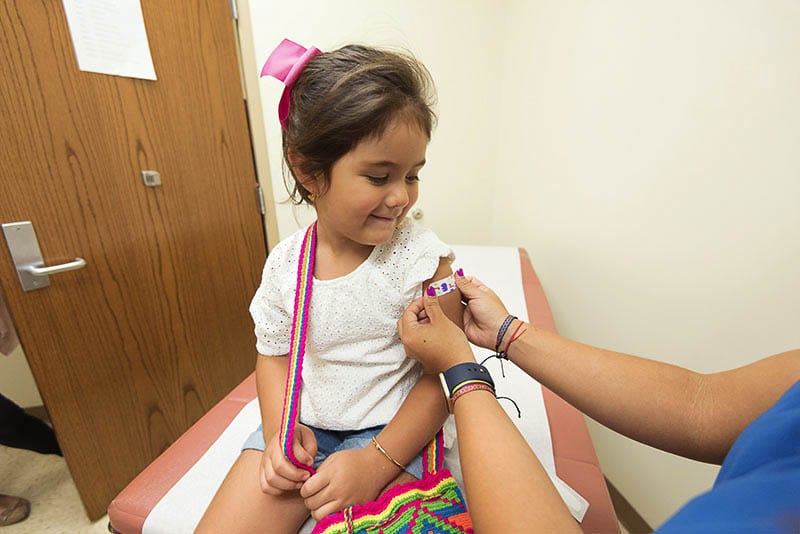Pandemic effects, like stress, correlate with rising weight growth in youth
CLARK COUNTY — Dr. Lisa Denike, chief of pediatrics for Kaiser Permanente Northwest, is seeing a troubling trend. Many of the children she sees are experiencing unhealthy weight gain.
Over the past three to five years, the country and the west coast have made impactful progress and inroads of culture shift when it comes to childhood obesity, but Denike and others fear the effects of the coronavirus pandemic may be causing backsliding.


“A lot of the kids that I was seeing annually, they were coming in for their checkups, and I was just noticing dramatic changes in their growth charts with weight gain, to the tune of 10 to 40 pounds for some kids, which can be really dramatic,” Denike said. “If you look at a growth chart to see a jump from a normal weight or body mass index percentile of like 50 to 75 percent, which is normal to jump up to the 95th percentile, which really is clinically in the obese range.”
The obvious correlation of young people being in front of screens more for online school and having less outdoor activity due to winter, are only part of the equation, Denike said. While there is research that suggests that metabolic rates are even lower looking at a screen versus reading a book, mental health factors also play large roles in pandemic weight gain for children, she said.
The added elements of stress and uncertainty in a household due to financial issues or illness, for example, are likely to affect the mental health of parents. This shift towards potentially anxiousness is often reflected in children.
Denike notes that stress eating to gain control or comfort, can be quite damaging to adults and children alike.
“As parents, when we become stressed, we turn to our coping skills and some coping skills people have are not as healthy as others,” Denike said. “When parents turn to eating their comfort foods, which probably are not whole fruits, vegetables and lean meats, [children] pick up on those habits from their parents. So I do think that it’s multifactorial, I think it’s the stress of the situation, which honestly, we know, biochemically or biologically in the body induces stress hormone release, and that can cause changes in our metabolism as well.”
Denike explained that working within the things in one’s control can lessen the influence of stress during hectic times. Many times when working with parents of a child who has gained an unhealthy amount of weight, a focus on the basics and practical, healthy habits is best, she said.
Schedules are a key component of this advice. The human body functions much better when eating, sleeping and daily routines are kept, Denike added. This kind of behavioral habit can eliminate grazing or snacking, which is often with unhealthy foods.
“The other struggle, I think, is as parents are working at home and trying to be teachers and parents and employees,” she said. “‘How do I schedule it and mealtimes? And how do I get in physical activity when it’s getting dark at five o’clock in the evening?’ So another suggestion I often make for families is just try to go outside for 10 or 15 minutes over the noon to one hour.”
Perhaps the most delicate aspect of what Denike and her peers are witnessing is how difficult it often is for parents to talk to their child about their weight gain. Denike notes that many parents she has interacted with are fearful of making their child self conscious or peratuating poor body image. In response, she says implementing the habits of better exercise and eating, together, can often eliminate the need for potentially anxiety inducing conversations.
According to Kaiser, the percentage of children considered obese is expected to jump in 2020, after declining slightly over the past 10 years. Doctors are also seeing a rise in mental health issues among children and teens, ranging from sadness and stress to anxiety and depression, according to information released by the provider.
Denike expressed great emphasis for parents allowing themselves 15 minutes each day to simply reset and recenter in the face of stress, so as to better care for their children.
“Things are difficult enough for families and parents that I don’t ever want them to feel like we’re trying to point out another thing that they’re doing wrong,” she added. “I really hope that parents see this as a time to stop and take a breath and realize … your kids and their health is really important, and it deserves to have some focus during the day. It shouldn’t be a stressful thing.”




